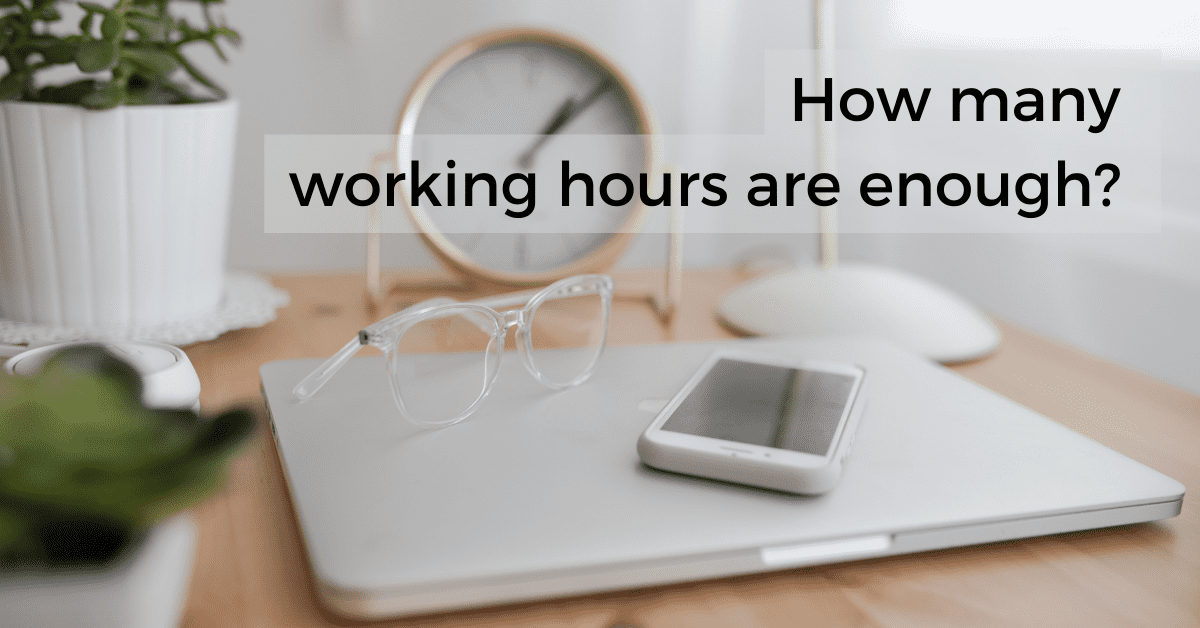The internet has made the line between work and home blurrier than ever, and it’s only getting worse. Especially with Millennials, success to them slowly becomes the amount of time they spend on work, and overwork turns into the norm of the new society.
If ever asked, all of us would have serious problems finding the ideal number of working hours per week. A 40-hours workweek is a standard for an average employee in most countries. However, the discussion of whether it is appropriate for both mental and physical health is still open.
How many hours should you work a day?
In Denmark, consistently one of the world’s happiest countries, their people only work a productive 37-hour week, often leaving the office by 4 or 5 PM each day. It doesn’t mean they are not working hard, in fact, they are one of the most efficient workforces in Europe.
Happiness expert Dan Buettner carried out research on more than 20 million people worldwide through the Gallup-Sharecare Well-Being Index on the world’s happiest countries. “When it comes to your work, try to work part-time, 30–35 hours a week on average,” he says.
A realistic goal is to work slightly below 40 hours a week if you want the best of both worlds: productive work and time control. Moreover, you will more likely be a happy and healthy employee at the workplace. The research shows that even shaving an hour or two off of the standard 40-hour workweek can have huge benefits, both at work and at home.
Working longer hours doesn’t mean better productivity
Whatever fields of work you are in, there’s plenty of evidence that the more hours you put into work doesn’t actually equate to higher productivity.
In a 2014 study, Pencavel, an economist at Stanford University, and his colleagues found that productivity falls sharply after 50 hours per week, and drops off a cliff after 55 hours. In fact, working 70 hours or 55 would result in pretty much the same level of productivity.
Despite 8 hours being the standard work time for a long time. However, based on an employee survey, most people are only productive for 3 hours every day. Therefore, it is believed that if we reduced the workday to five or six hours, it would increase productivity and employee well-being.

>> Read more: Hustle culture – a desirable goal or a toxic lifestyle?
Quality over quantity
What matters most is not the number of working hours, but the quality of the job. Moreover, it also makes a huge difference to our mental health and wellbeing. Taking short breaks during the workday is okay – in fact, many high-profile business leaders recommend taking regular breaks in order to make you more productive.
Kamerade Hanta – a sociologist from the University of Salford shared: “The value of the work that is being done also matters. What makes the biggest difference is whether we find work meaningful”.
And it is true. According to the University of Warwick, happiness makes people 12% more productive. Their research showed that productivity among the happy people increased by an average of 12%, and reached as high as 20% above the control group. These are some impressive numbers. Just think of what your company could accomplish if your employees were 12% — 20% more productive.
It is not beneficial for the society
People who spend most of their time on work may have little to no time to engage in other activities outside of work, including spending time with their families or looking after themselves such as doing exercises or eating healthily.
Following a research by CDC, 10 percent of those working 50 to 60 hours report relationship problems; the rate increases to 30 percent for those working more than 60 hours.
“Civic participation is very important to maintain democracy. And if people are working much, they simply don’t have time to participate in civic life,” Kamerade Hanta said.
At the same time, a shorter workweek might benefit certain demographics, like the elderly or small children. Therefore, building better and healthier households, relieving pressure on public resources and private care.
>> Read more: Burnout – Who Should Take Action?
The more we spend at work, the less time we have for other important things in life. Because of that, the time at work should be maintained moderately for our work-life balance. When our quality of life is enhanced, work becomes more enjoyable.
The JobHopin Team

